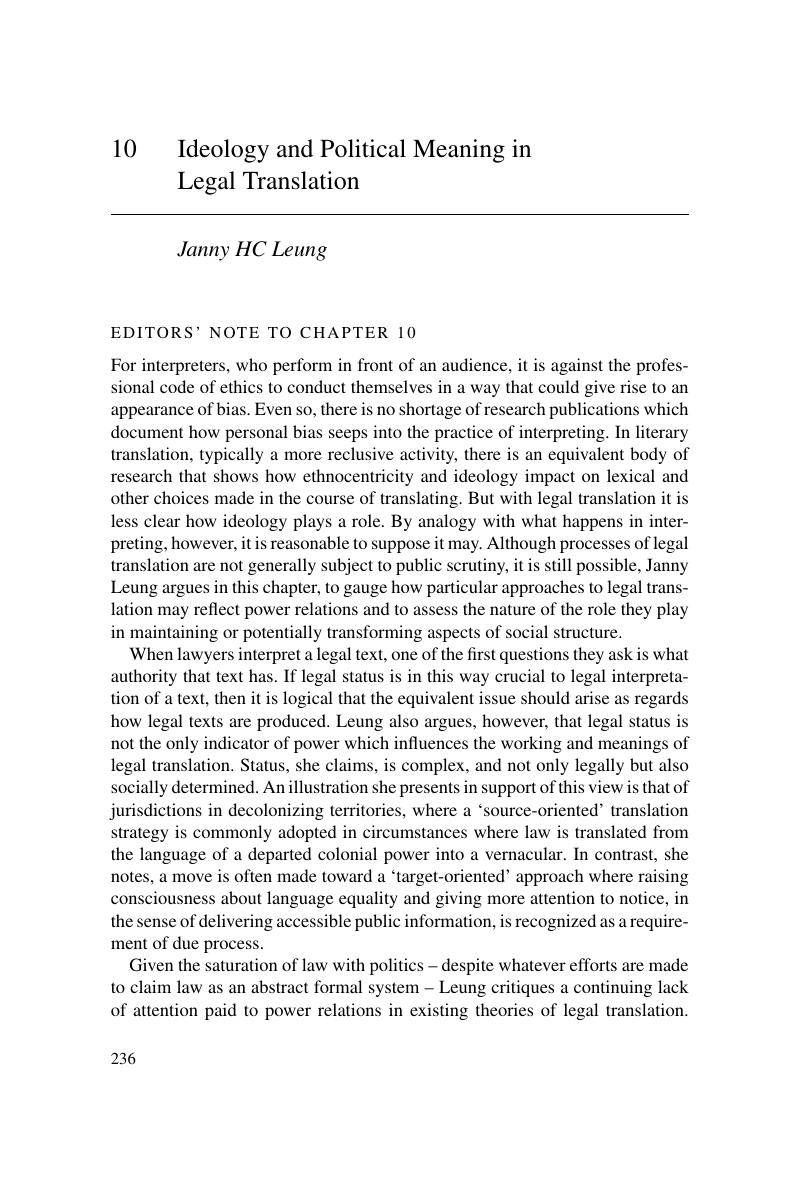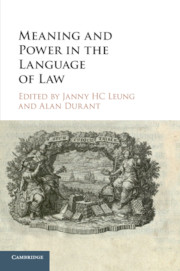Book contents
- Meaning and Power in the Language of Law
- Meaning and Power in the Language of Law
- Copyright page
- Contents
- Contributors
- Acknowledgements
- Editors' Introduction
- Part I Sui generis or Socially Problematic: The Character of Legal Language
- Part II Imperfect Fit between Legal Categories and Social Discourse
- Part III Written in Silence: Hidden Social Meanings in Legal Discourse
- Part IV Conflict between Linguistic and Legal Ideologies
- 9 When Voices Fail to Carry: Voice Projection and the Case of the ‘Dumb’ Jury1
- 10 Ideology and Political Meaning in Legal Translation
- Part V Demands of Law and Limits of Language
- Afterword
- Index
- References
10 - Ideology and Political Meaning in Legal Translation
from Part IV - Conflict between Linguistic and Legal Ideologies
Published online by Cambridge University Press: 28 December 2017
- Meaning and Power in the Language of Law
- Meaning and Power in the Language of Law
- Copyright page
- Contents
- Contributors
- Acknowledgements
- Editors' Introduction
- Part I Sui generis or Socially Problematic: The Character of Legal Language
- Part II Imperfect Fit between Legal Categories and Social Discourse
- Part III Written in Silence: Hidden Social Meanings in Legal Discourse
- Part IV Conflict between Linguistic and Legal Ideologies
- 9 When Voices Fail to Carry: Voice Projection and the Case of the ‘Dumb’ Jury1
- 10 Ideology and Political Meaning in Legal Translation
- Part V Demands of Law and Limits of Language
- Afterword
- Index
- References
Summary

- Type
- Chapter
- Information
- Meaning and Power in the Language of Law , pp. 236 - 256Publisher: Cambridge University PressPrint publication year: 2018
References
- 13
- Cited by



